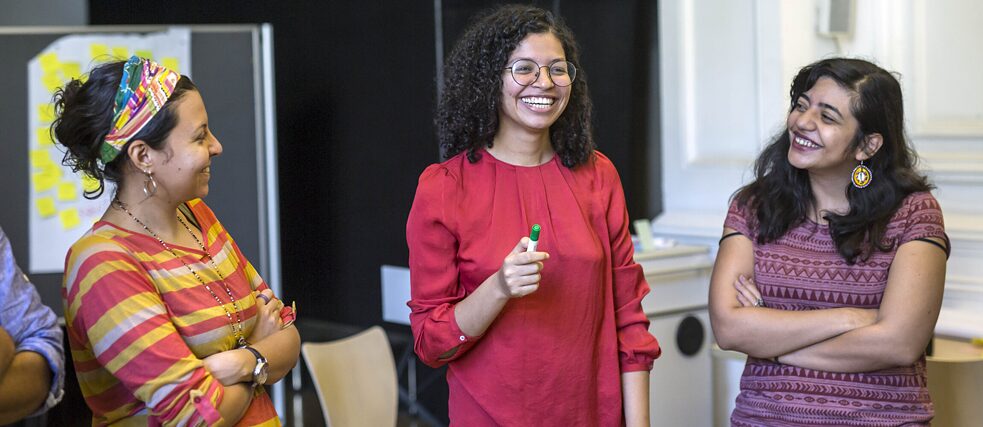Thinking about the maps and infographics that today are popular on social media, it becomes clear that the founders of HarassMap" were ahead of their time: "Our idea was to visualize sexual harassment of women so that it could no longer be denied," said Alia Soliman, the head of marketing at the time. With success: the small website later grew to be an award-winning app that is reported on an international level.
Undoubtedly, sexual harassment of women is one of the most important social issues of the past decade and widespread in Egypt. Although the topic repeatedly flared up in the media - from the reports of gang rapes in occupied Tahrir Square to the testimonies of affected Egyptian women under the hashtag #metoo and most recently to the protests at the American University in Cairo - assaults are still omnipresent in many women’s everyday lives today. According to a large-scale study conducted by the Egyptian Centre for Women's Rights in 2008, 83 percent of Egyptian women and 98 percent of foreign women interviewed said they had been sexually harassed. Whistles and lewd remarks in the street, gawping and groping in the crowded Cairo metro - and many women experience even worse. Those who have visited Egypt repeatedly since then may have noticed improvements, but the problem is far from solved.
HarassMap is only one NGO among many committed to strengthening women’s rights and raising awareness on gender sensitivity in Egypt. The Goethe-Institut Cairo also offers support, for example by providing secure premises or organizing network meetings with other organizations.
In 2014, the Goethe-Institut launched its first “Female Empowerment”-project addressing women’s roles in Egypt: an educational trip of young Egyptian women to Germany. The trip was an intended encounter between participants from different cultures: Egyptian women, often having to fit traditional gender roles in their families met German hosts fighting their battle for gender justice on other fronts. The confrontation with the German participants was at times profound and emotional for the Egyptian women participating, two of whom did not even have a passport until then. A young participant who at the beginning of the trip explained the role of the headscarf in Egyptian society took hers off for the first time in years at the end of her stay.
The success of the educational trip was the starting signal for a series of projects that the Goethe-Institut has implemented since then. Their names reflect the evolution of the public debate: from "Female Empowerment" to "Women and Gender Projects" and "Gender Awareness" to "Focus: Society and Diversity", as it has been called since 2020. Even if the focus shifted a little to gender identities in general, the core ideas remained the same: civil society education, the creation of a safe space for discussion and exchange of opinions, and inclusive, gender-sensitive frameworks for workshops, educational offers or events, making it possible for women to participate in the projects despite family commitments or cultural restrictions.
The projects focus primarily on trainings and workshops on gender issues and women's empowerment, which are conducted throughout Egypt together with local partners. In Upper Egypt, far from the metropolises of Cairo and Alexandria, the psychologist Hoda Kandil designs such workshops. Kandil once took part in a Goethe-Institut workshop on civil society education herself, and now works as an independent gender awareness trainer in the particularly traditional and conservative region. "Gender is often misunderstood as just defending women's rights," says Kandil. "We try to change this by emphasizing how important men's participation is too - especially when it comes to renegotiating gender roles within a society." For Kandil, gender is not just a concept, but a way of life that starts with the smallest things: "For example, in some families in Upper Egypt, the men should start eating first and the women should only eat when the men have finished. Another example is how in Egyptian society boys are brought up and taught not to cry because it is something for women and a sign of weakness."
Especially in rural areas, the participants are encouraged to get involved in their local communities and to actively shape society, as the path to gender equality is even further and stonier here than in the urban centers. If the Goethe-Institut has its way, new NGOs and activists, the successor generation of HarassMap, so to speak, are welcome to come from the provinces.
